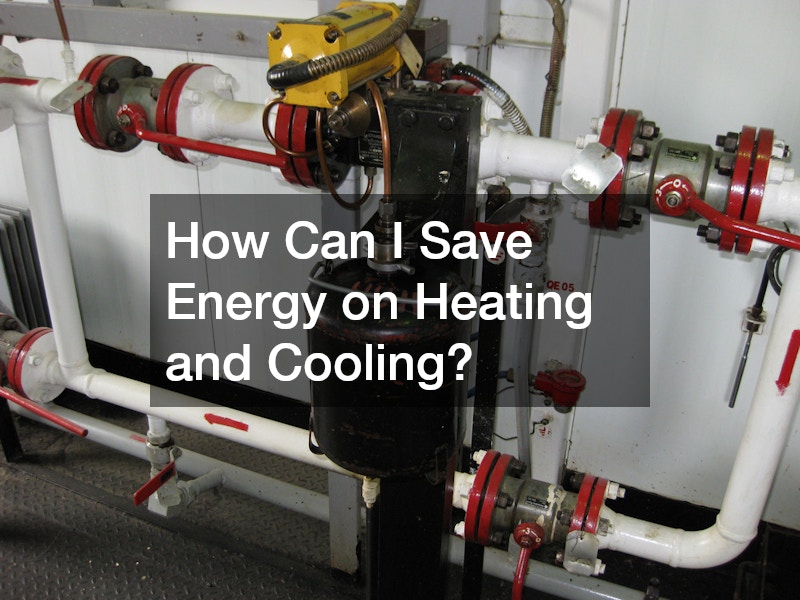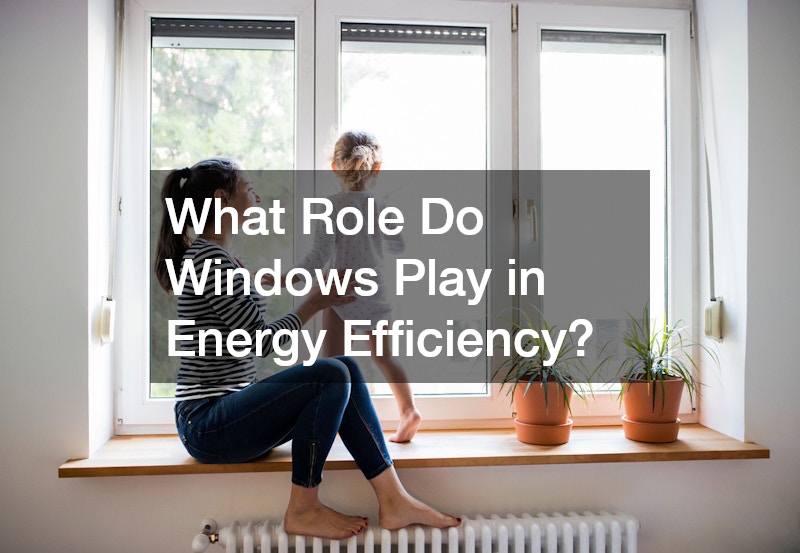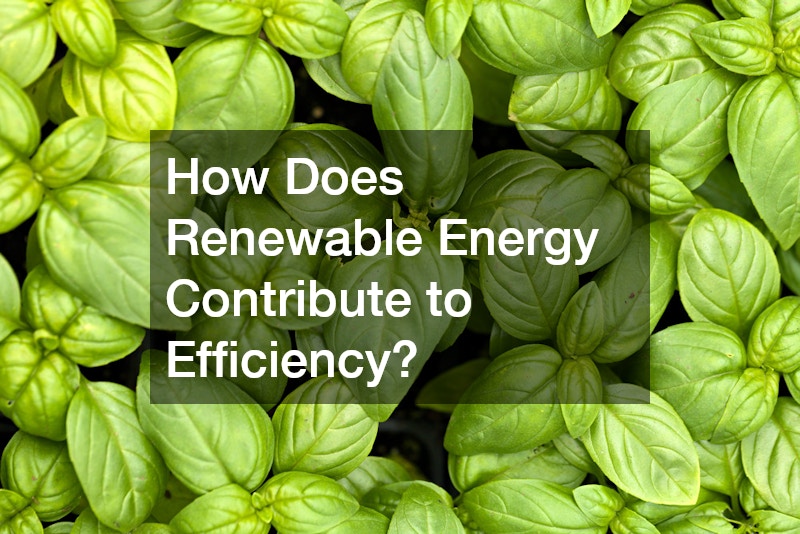Energy efficiency is a key factor in modern home design, offering both environmental benefits and long-term cost savings. Efficient homes use less energy for heating, cooling, lighting, and appliances, which not only reduces utility bills but also minimizes the carbon footprint. Implementing energy-saving strategies can range from small, simple adjustments to larger home renovations, and many improvements can be performed with the help of professionals such as local heating contractors, HVAC companies, insulation contractors, and building contractors. By understanding the ways to make your home more energy efficient, you can improve comfort, reduce costs, and contribute to a sustainable future.
How Can I Insulate My Home Effectively?

Proper insulation is foundational for energy efficiency, keeping heat inside during winter and outside during summer. It reduces the workload on your HVAC system, which can save both energy and money.
Choosing the Right Insulation Material
Selecting the right insulation material is critical for maximizing efficiency. Fiberglass and cellulose insulation are common choices for attics and walls, providing strong thermal resistance at an affordable cost. Spray foam insulation offers superior air sealing, while rigid foam boards are ideal for basement walls or exterior areas. Working with an insulation contractor can ensure the proper material is selected based on your home’s structure, climate, and energy goals.
Sealing Windows and Doors
Air leaks around windows and doors are major sources of energy loss. Sealing gaps with weatherstripping or caulking can prevent drafts and maintain indoor temperatures. Local window suppliers often provide double-glazed or energy-efficient window options that further reduce heat transfer, making your home more comfortable year-round.
Insulating the Attic and Walls
The attic is often the largest source of heat loss. Adding or upgrading insulation in the attic and walls keeps warm air inside during winter and hot air out during summer. Many building contractors recommend targeting older homes first, as these structures may have little to no existing insulation. Working with a professional ensures proper installation and long-term durability.
Using Weatherstripping
Weatherstripping is an inexpensive and highly effective way to prevent air leaks around doors and windows. Over time, gaps and cracks can develop due to settling or seasonal shifts in temperature. Consistent maintenance with weatherstripping protects your home from unnecessary energy loss while enhancing indoor comfort.
Maintaining Insulation Integrity
Regular inspection of insulation is essential. Moisture, pests, or settling can compromise its effectiveness. An insulation contractor can assess your home periodically and address any damaged or compressed areas, ensuring energy efficiency remains at its peak.
What Are the Best Energy-Efficient Appliances?
Modern appliances can greatly reduce energy consumption without sacrificing performance. Upgrading to energy-efficient appliances is one of the simplest ways to achieve long-term savings.
Understanding ENERGY STAR Ratings
ENERGY STAR-certified appliances meet strict energy efficiency standards. Refrigerators, washing machines, and dishwashers with this rating use less electricity or water, helping lower utility bills. Consulting a local electrician before installing major appliances can ensure safe electrical connections and optimal efficiency.
Choosing Energy-Efficient Refrigerators
Refrigerators are among the highest energy-consuming appliances. Energy-efficient models use advanced compressors, superior insulation, and LED lighting to minimize electricity use. Selecting a model that matches your household size prevents unnecessary energy waste.
Selecting Efficient Washing Machines
High-efficiency washing machines use less water and energy compared to traditional models. Front-loading machines often spin faster, reducing drying time and overall electricity usage. Running cold water cycles whenever possible also conserves energy.
Upgrading to Energy-Saving Dishwashers
Modern dishwashers include sensors to optimize water and energy use according to load size. Many models feature eco-modes or efficient drying options. Running the dishwasher only when fully loaded is another effective way to save energy.
Investing in Smart Home Technology
Home automation services can improve energy efficiency by controlling lighting, heating, and appliances intelligently. Smart devices allow for scheduling and remote monitoring, ensuring energy is not wasted when rooms are unoccupied. Integration with programmable thermostats and smart outlets can further reduce unnecessary energy consumption.
How Can I Save Energy on Heating and Cooling?

Heating and cooling account for a significant portion of household energy use. Reducing energy consumption in these areas can have an immediate impact on monthly bills.
Installing Programmable Thermostats
Programmable thermostats allow homeowners to adjust indoor temperatures automatically based on schedules. A local heating contractor or HVAC company can help install and calibrate these systems, maximizing efficiency without compromising comfort. Smart thermostats learn your habits and optimize heating and cooling patterns, often resulting in substantial energy savings.
Regular HVAC Maintenance
Routine maintenance of your HVAC system ensures it operates at peak efficiency. Replacing filters, checking ducts for leaks, and scheduling annual inspections can prevent wasted energy and extend the lifespan of the system. Working with a reputable HVAC company guarantees professional service and reliable performance.
Utilizing Fans and Ventilation
Ceiling fans and proper ventilation improve air circulation, reducing the need for excessive heating or cooling. Fans help distribute warm air during winter and create a cooling breeze in summer, allowing thermostats to remain at more energy-efficient settings.
Using Insulated Curtains
Insulated curtains prevent heat from escaping during cold months and block heat from entering during warmer seasons. Combining curtains with energy-efficient windows from local window suppliers amplifies energy savings.
Optimizing Room Layout
Strategically arranging furniture to avoid obstructing vents or natural light can enhance heating and cooling efficiency. Open layouts near windows can allow sunlight to naturally warm spaces in winter, reducing the need for supplemental heating.
Are LED Lights Really More Efficient?
Lighting may seem minor, but it can contribute significantly to energy consumption. LEDs offer a clear solution for reducing electricity usage.
Benefits of LED Lighting
LED bulbs consume up to 80% less energy than traditional incandescent bulbs and last significantly longer. They produce less heat, which can indirectly reduce cooling costs in warmer months.
Comparing LED and Traditional Bulbs
While LED bulbs may have a higher upfront cost, their efficiency and longevity result in substantial savings over time. They are particularly effective in frequently used areas, such as kitchens and living rooms, where energy usage is high.
Calculating Lifetime Savings
Switching an entire home to LED lighting can save hundreds of dollars in electricity costs over several years. Smart lighting controls provided through home automation services further enhance these savings by turning off lights in unoccupied rooms.
Proper LED Installation
Proper installation is key to maximizing LED performance. Consulting a local electrician ensures that wiring, dimmers, and fixtures are compatible, reducing the risk of energy waste or damage.
Leveraging Dimmers and Smart Controls
Dimmers and smart switches allow precise control of lighting levels, which reduces energy use without compromising comfort. Integration with home automation services makes it possible to schedule lights, adjust intensity, and monitor energy consumption remotely.
How Can I Reduce Water Heating Costs?
Water heating is another area where energy efficiency can dramatically lower household expenses.
Installing a Tankless Water Heater
Tankless water heaters provide hot water on demand, eliminating the need to constantly heat stored water. This reduces energy usage and increases efficiency. HVAC companies or local heating contractors can provide professional installation to ensure optimal performance.
Using Solar Water Heaters
Solar water heaters use renewable energy from the sun to warm water, reducing reliance on electricity or gas. While installation involves an upfront investment, long-term savings on utility bills make this an effective strategy for energy-conscious homeowners.
Insulating Hot Water Pipes
Hot water can lose energy as it travels through pipes. Insulating these pipes reduces heat loss and speeds up delivery, which also lowers water heating costs.
Reducing Hot Water Usage
Simple changes, such as taking shorter showers or using cold water for laundry, can significantly cut water heating energy. Low-flow fixtures complement these efforts by reducing water consumption without sacrificing performance.
Setting the Right Water Heater Temperature
Maintaining your water heater at the recommended 120 degrees Fahrenheit balances energy efficiency with comfort. Many modern systems allow programmable settings for additional savings.
What Role Do Windows Play in Energy Efficiency?

Windows are a key component of energy-efficient homes. Properly selected and installed windows can prevent drafts, reduce heat transfer, and improve overall comfort.
Installing Double-Glazed Windows
Double-glazed or triple-glazed windows provide superior insulation compared to single-pane models. Local window suppliers often offer a range of options, including energy-efficient coatings and gas-filled panes that enhance performance.
Using Window Films or Tints
Window films and tints reduce heat gain in summer while blocking harmful UV rays. They are an affordable alternative to full window replacement and can improve the efficiency of existing windows.
Employing Thermal Curtains
Thermal curtains provide an additional barrier against heat loss or gain, complementing energy-efficient windows. Combined with proper insulation and sealing, they help maintain a consistent indoor temperature year-round.
Impact of Window Orientation
The orientation of windows affects solar heat gain and natural lighting. South-facing windows can provide passive solar heating in colder climates, while north-facing windows minimize overheating in warmer regions. Strategic placement enhances energy efficiency without major renovations.
Retrofitting Existing Windows
Older windows can be retrofitted with weatherstripping, caulking, and storm panels to improve efficiency. Building contractors often specialize in retrofitting solutions that balance performance with aesthetics.
How Important is Home Energy Auditing?
Energy audits identify areas where energy is being wasted, allowing homeowners to target improvements effectively.
Conducting a DIY Energy Audit
Homeowners can start by checking for visible leaks, inspecting insulation, and assessing appliance efficiency. Simple tools like thermal cameras or energy monitors help detect problem areas without professional assistance.
Hiring Professional Energy Auditors
Professional audits provide a comprehensive evaluation of a home’s energy performance. Auditors use specialized tools to measure heat loss, air leaks, and HVAC efficiency. Local HVAC companies or insulation contractors often offer auditing services.
Identifying Major Energy Drains
Audits reveal high-energy areas such as poorly insulated attics, drafty windows, or outdated appliances. Once identified, these areas can be prioritized for improvement.
Implementing Audit Recommendations
Following through on audit recommendations ensures tangible results. This may include insulation upgrades, HVAC maintenance, or the installation of energy-efficient windows and lighting.
Annual Energy Audit Reviews
Regular audits track progress and help homeowners maintain efficiency over time. Keeping records allows comparison of energy usage year over year, highlighting areas for further improvement.
Can Landscaping Affect Energy Efficiency?
Landscaping plays a surprisingly important role in a home’s energy consumption. Trees, shrubs, and other vegetation can reduce heating and cooling needs.
Planting Shade Trees
Strategically planted shade trees block direct sunlight in summer, keeping interiors cooler and reducing reliance on air conditioning. Tree companies can advise on the best species and placement for maximum impact.
Using Shrubs for Insulation
Dense shrubs near walls can act as natural insulation, reducing heat loss in winter and heat gain in summer. These natural barriers complement insulation and improve energy efficiency.
Creating Windbreaks
Windbreaks made of trees or hedges shield homes from cold winter winds, lowering heating requirements. Proper planning ensures that windbreaks do not interfere with sunlight or outdoor living spaces.
Utilizing Green Roofs
Green roofs, covered with vegetation, provide insulation, reduce heat absorption, and improve stormwater management. Building contractors experienced in sustainable designs can implement these solutions effectively.
Integrating Water-Efficient Systems
Drip irrigation, rainwater harvesting, and drought-tolerant plants reduce water consumption, indirectly reducing the energy needed to pump and heat water.
What Are Effective Ways to Cut Standby Power?
Even when devices are off, they may continue consuming energy. Managing standby power, also called phantom load, is an important step in energy efficiency.
Identifying Phantom Loads
Electronics like televisions, gaming consoles, and chargers often draw power even when turned off. Identifying these devices is the first step toward reducing unnecessary energy consumption.
Unplugging Unused Devices
Simply unplugging devices when not in use eliminates phantom power consumption. This simple habit can have a measurable effect over time.
Using Smart Power Strips
Smart power strips automatically cut power to idle devices. Home automation services can integrate these strips for more convenient control and efficiency.
Educating Household Members
Encouraging everyone in the home to turn off devices and manage energy use ensures consistent savings and builds a culture of efficiency.
Implementing Automatic Shut-Offs
Some appliances and lighting systems allow for automatic shut-off after inactivity. Combining smart technology with household awareness creates a seamless approach to reducing standby power.
How Does Renewable Energy Contribute to Efficiency?

Renewable energy systems can dramatically reduce reliance on traditional power grids, decreasing energy costs and environmental impact.
Benefits of Solar Panels
Solar panels generate electricity from sunlight, cutting utility bills and providing long-term savings. Roof-mounted systems installed by a qualified roofing company maximize exposure and efficiency. During your AC Installation is a good time to consider solar panels.
Installing Wind Turbines
Residential wind turbines provide an additional renewable energy source, particularly in areas with consistent wind patterns. Combining wind and solar systems can reduce dependence on conventional energy sources.
Utilizing Geothermal Heating
Geothermal systems leverage the earth’s constant temperature for heating and cooling. These systems, installed by skilled HVAC companies or local heating contractors, provide efficient, year-round energy management.
Investing in Biomass Systems
Biomass heating systems use organic materials such as wood pellets for heating, offering an alternative to traditional fossil fuels. This renewable solution is especially effective in rural or suburban areas.
Balancing Renewable Energy with Consumption
Even with renewable energy, efficiency practices remain essential. Combining solar, wind, or biomass systems with proper insulation, energy-efficient appliances, and smart home technology maximizes both cost savings and environmental benefits.
Final Thoughts
Improving your home’s energy efficiency is a multifaceted process that combines insulation, energy-efficient appliances, renewable energy systems, smart home technology, and landscaping strategies. By working with professionals such as HVAC companies, local heating contractors, insulation contractors, roofing companies, local electricians, building contractors, local window suppliers, and tree companies, homeowners can implement lasting improvements that enhance comfort, lower energy bills, and reduce environmental impact. Embracing energy efficiency is an investment in the future, ensuring your home is sustainable, cost-effective, and comfortable for years to come.


